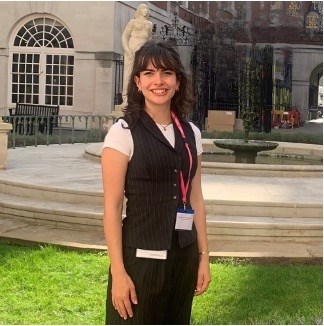Tracheal Adenoid Cystic Carcinoma: why studying it matters - and how biobanks help
Why studying rare cancers like Tracheal Adenoid Cystic Carcinoma matters- and how biobanks help
Why is it important?
When people think of cancer they jump straight to the most common types like lung, breast, prostate, or bowel. But there are many types of rare cancer across various sites of the body, one of which is called tracheal adenoid cystic carcinoma (ACC).
What is Tracheal Adenoid Cystic Carcinoma?
Adenoid Cystic Carcinoma (ACC) commonly develops in the salivary glands or other areas of the head and neck. Tracheal ACC is a rare form of cancer that develops in the windpipe (trachea) and accounts for 0.04-0.2% of lung or airway cancers. Because it is so uncommon, a doctor will only see a handful of cases (if any!) over many years. This makes it difficult for doctors and researchers to gather enough information to fully understand and treat the disease.
Figure 1- taken from https://www.crossfit.com/essentials/lung-anatomy-the-airway-and-alveoli
When cancer occurs in different areas of the body, the way it behaves over time can be affected, so we often need to treat it differently. Treatment can be challenging, and ACC of the respiratory tract is often treated following lung cancer guidelines. However, it doesn’t respond to chemotherapy and immune check blockage treatments typically used in lung cancers.
Why rare cancers are hard to study?
For common cancers like breast or lung cancer researchers can draw on thousands of cases for a research study. The more cases there are to look at and draw from, the easier it is to identity patterns, test treatments and track outcomes over the long term. There are not big numbers for rare cancers, meaning each case is a vital puzzle piece. The key is to gather these pieces together to get the full picture- but when the cases are scattered across hospitals and countries it requires coordination to put all the pieces together.
Why we need biobanks
This is where the importance of Biobanks comes in. A biobank is a collection of tissue samples and health data donated by patients. At places like The Christie NHS Foundation Trust, researchers are building a centralised biobank specifically designed to support rare cancers like tracheal. By combining crucial patient data and the genetic components of these cancers, researchers can look for patterns that would otherwise be invisible. This allows for evidence-based treatment as well as helping research and clinical trials.
A hopeful future for rare cancer patients
For patients diagnosed with a rare cancer like tracheal ACC, the path forward can be uncertain. But by sharing data, supporting biobanks, and encouraging collaboration, we can build a clearer map- one that leads to better treatments and better outcomes.
About the author: Isobel Read who is a University of Manchester medical student doing an internship in salivary gland cancers.
My name is Isobel Read and I’ve just completed my final year of Medicine at the University of Manchester. I chose to study medicine because I’ve always been fascinated by how the body works – and what happens when it doesn’t. That curiosity has grown into a deeper interest in oncology, particularly in rarer cancers where research can have a significant impact.
Salivary gland cancers, while relatively uncommon, present complex diagnostic and therapeutic challenges due to their anatomical location and diversity of tumour types. During my time working with the head and neck research team at The Christie, I became especially interested in how we can better characterise these cancers to improve outcomes for patients. The balance between curative treatment and preserving quality of life is particularly compelling in this area, and I hope to contribute to this field as I begin my foundation training and continue developing my academic interests.
A fun fact about me: I got caught in a hurricane while on my elective placement in St Vincent and the Grenadines. It was a surreal but unforgettable experience, and a powerful reminder of the resilience needed in medicine – and in life.
You can see Isobel's ESMO 2025 poster 'Clinical and genomic characterisation of adenoid cystic carcinoma (ACC) of the respiratory tract and the major salivary gland' here. You can read her experience of attending ESMO 2025 with a SGC UK travel grant here.



Last updated January 2026

